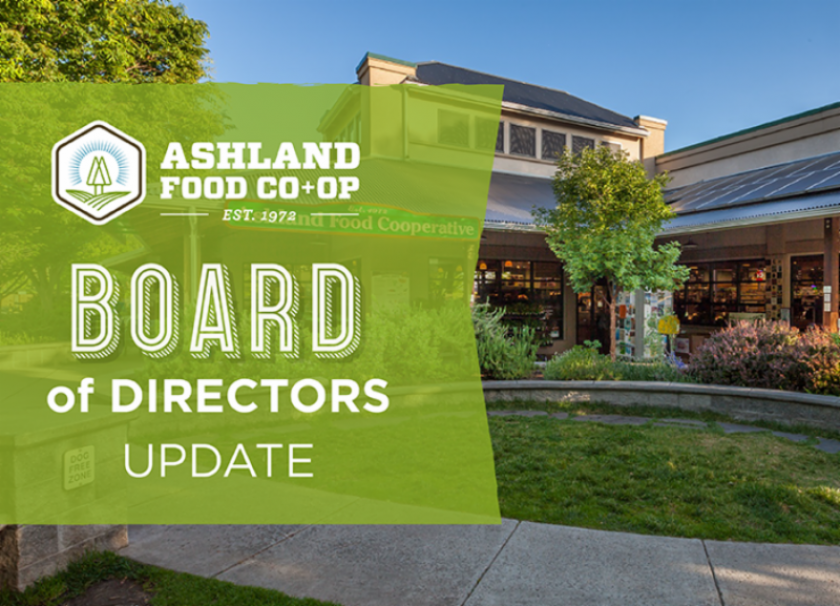
From the Board: Co-ops Look in the Mirror
By Annie Hoy, Board Secretary and Chair of Owner Engagement Committee
Food Co-ops around the nation proudly display signage saying EVERYONE WELCOME. Or they use the slogan, “Anyone can shop. Anyone can join.” But are food co-ops, and other cooperative businesses, walking the walk?
The double calamity of a pandemic and civil unrest has helped cooperatives in every economic sector see inequities more clearly. They have become a central focus of entire conferences, both internationally and in the food co-op sector specifically. Diversity, Equity and Inclusion in relation to the co-op movement is under review and committees have formed in credit unions, housing co-ops, worker co-ops, platform co-ops and of course, food co-ops. It can be uncomfortable work. But getting to liberation is uncomfortable, as many of our brothers and sisters of color have known for centuries.
The co-op movement’s statement of purpose says that co-ops are jointly owned by the people who use their services. There are universal people-centered principles like concern for community, autonomy and independence. Co-ops are democratically controlled, and guided by values like democracy, equality, equity and solidarity, as well as self-help and self-responsibility. But if you graded co-ops on diversity, equity and inclusion, you might find that the movement has an uncomfortable problem.
Jessica Gordon Nembhard, in her keynote address at October’s international Co-op IMPACT conference, began her speech with a mythbusting question: Co-ops can’t be racist, right? She then noted the small number of black, brown and indigenous bodies in the room. She described how co-op development materials never mention the rich history of black or indigenous co-ops across time. She challenged us to recognize the ways we might perpetuate institutional racism, or what we do if we see racist microagressions and exclusion in our co-ops. She urged co-op leaders to rely on Principle 6, Cooperation among Cooperatives, to create a solidarity economy that practices social justice, no matter what sector of the co-op economy you represent.
In the food co-op sector, and at Ashland Food Co-op, we are engaging in conversations about what community means and who is part of that community. Is everybody really welcome? And if not, how can we address that?
More Co-op News

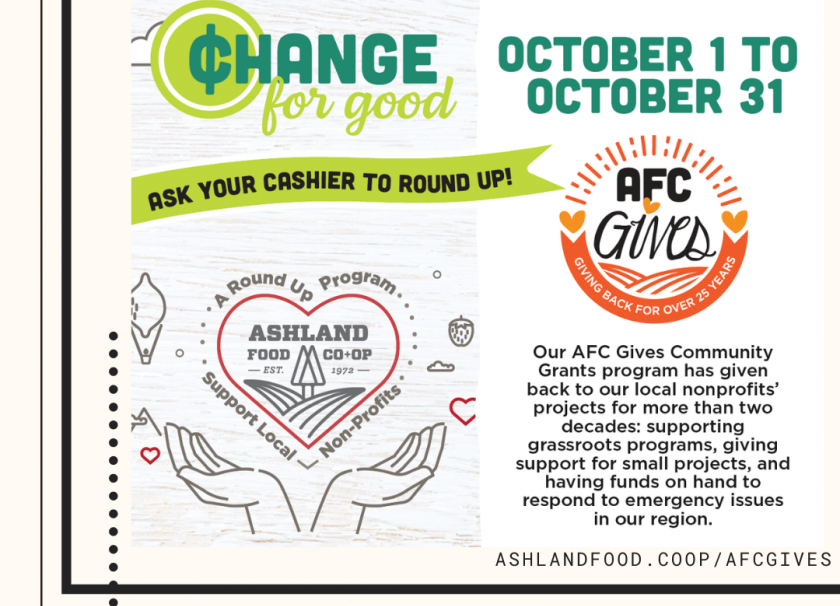
October Change for Good Partner: AFC Gives Community Fund
October's Change for Good Partner is
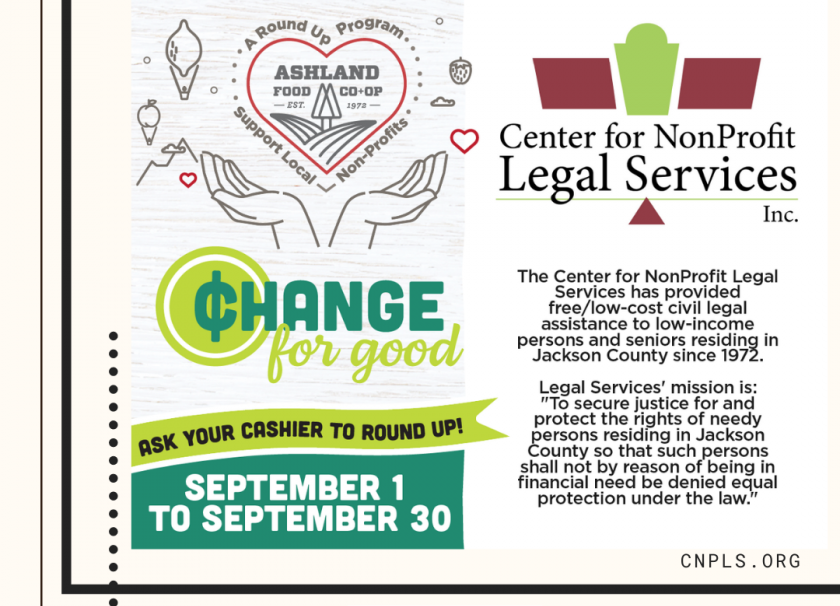
September Change for Good Partner: Center for NonProfit Legal Services
September's Change for Good Partner is
Center for NonProfit Legal Services
The Center for NonProfit Legal Services has provided free/low-cost civil legal assistance to low-income persons and seniors residing in Jackson County since 1972.

August Change for Good Partner: Klamath-Siskiyou Wildlands Center
August's Change for Good Partner is
Klamath-Siskiyou Wildlands Center
(KS Wild)
KS Wild's mission is to protect and restore wild nature in the Klamath-Siskiyou region of southwest Oregon and northwest California.

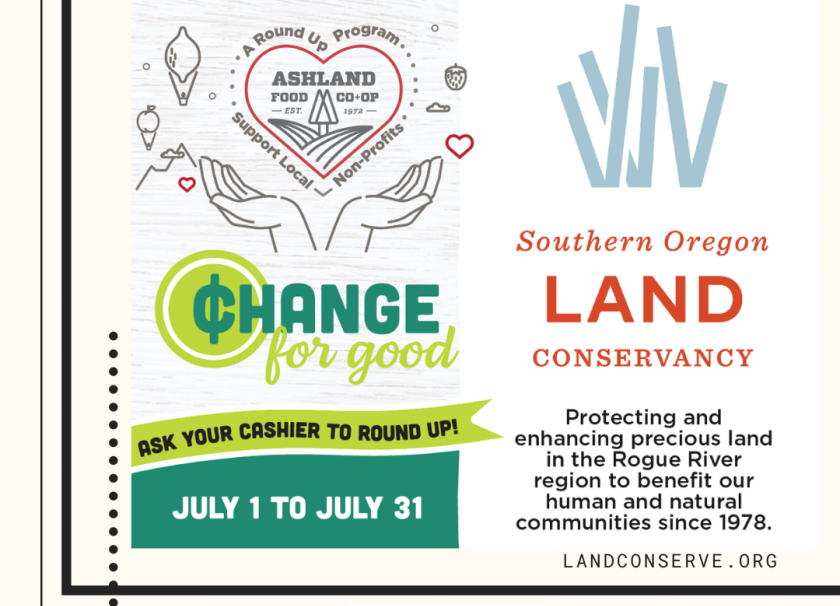
July Change for Good Partner: Southern Oregon Land Conservancy
July's Change for Good Partner is
Southern Oregon Land Conservancy
Protecting and enhancing precious land in the Rogue River region
to benefit our human and natural communities since 1978
Meet the 1st Street Beet
Welcome to the newly redesigned and reimagined newsletter from the Ashland Food Co-op: 1st Street Beet.
Think of this publication as a resource to know what’s going on in every level of the community: at the co-op, around town, in the region, and on Earth!
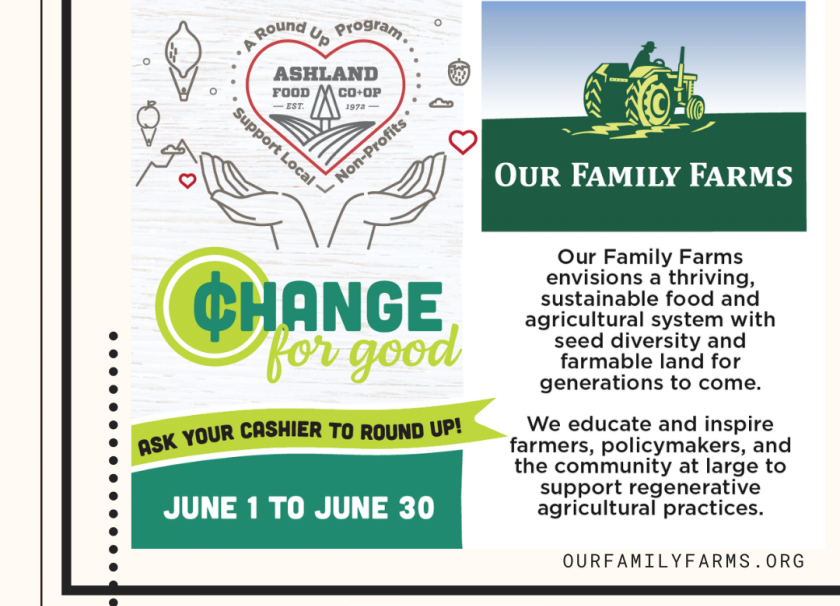
June Change for Good Recipient: Our Family Farms
June's Change for Good Recipient is
Our Family Farms, an Oregon 501(c)3 non profit organization, is hard at work educating and inspiring farmers, policy makers and the community at large to support regenerative agricultural practices.

Capiche Conversations: Interview with Tracy Kaiser, Marketing & Education Manager of Ashland Food Co-op
Our own marketing manager, Tracy Kaiser, was interviewed by Melissa L. Michaels for Capiche Conversations.
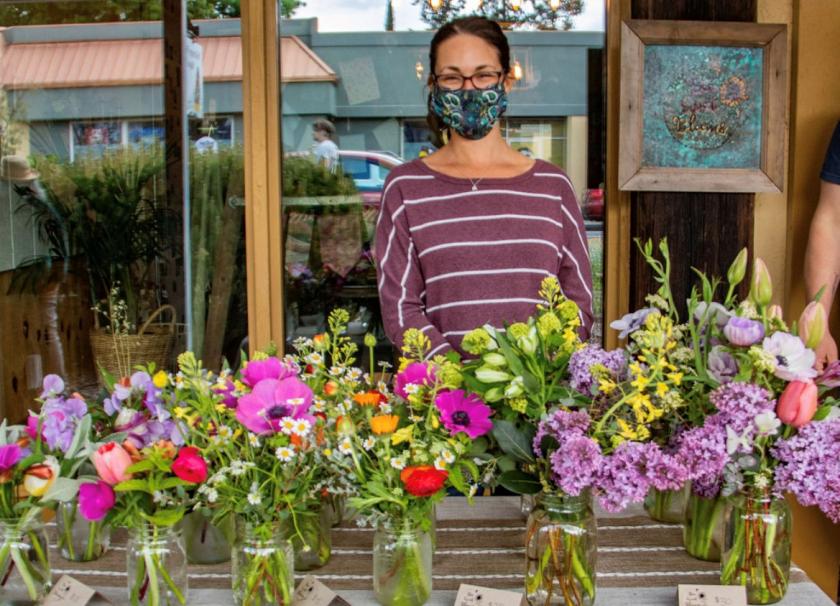
May Day Community Block Party
Photography by Chelsea Whitney Art
On May 1st, several Southern Oregon businesses came together for a block party to provide a space to gather as a community after a rough spell due to the pandemic and fires. The May Day Block Party was hosted on Main St in Phoenix, where the scent of food trucks mingled with artisan goods such as local cheeses, locally farmed flowers, and even fresh-baked pastries.
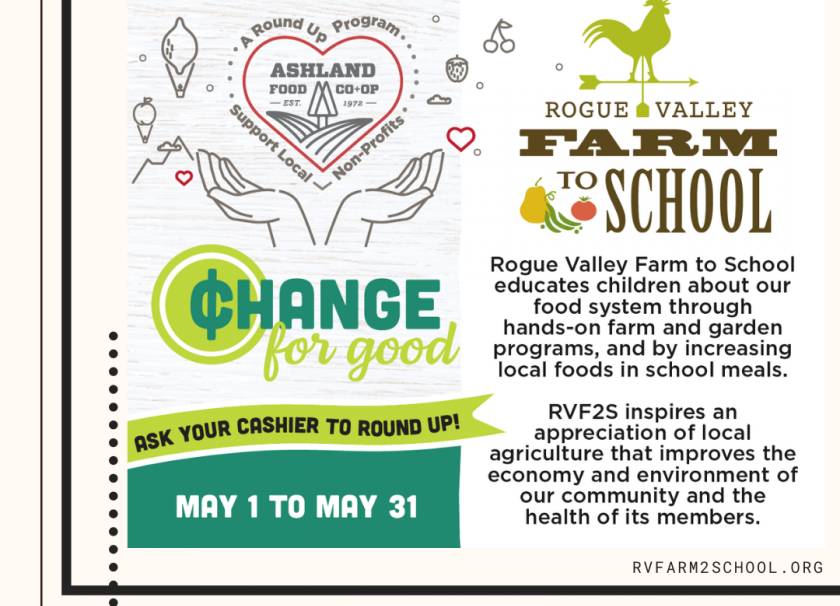
May Change for Good Recipient: Rogue Valley Farm to School
May's Change for Good Recipient is
Rogue Valley Farm to School educates children about our food system through hands-on farm and garden programs, and by increasing local foods in school meals.
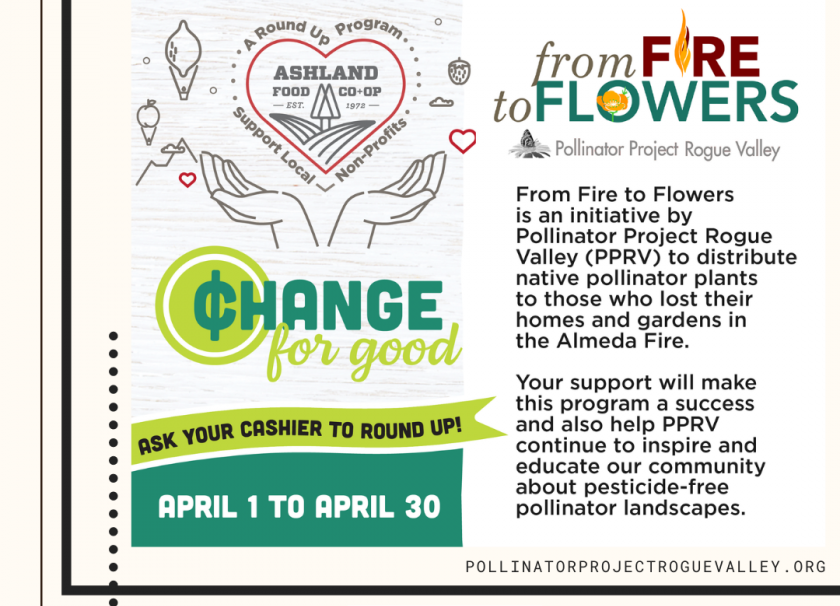
April Change for Good Recipient: Pollinator Project Rogue Valley
April's Change for Good Recipient is
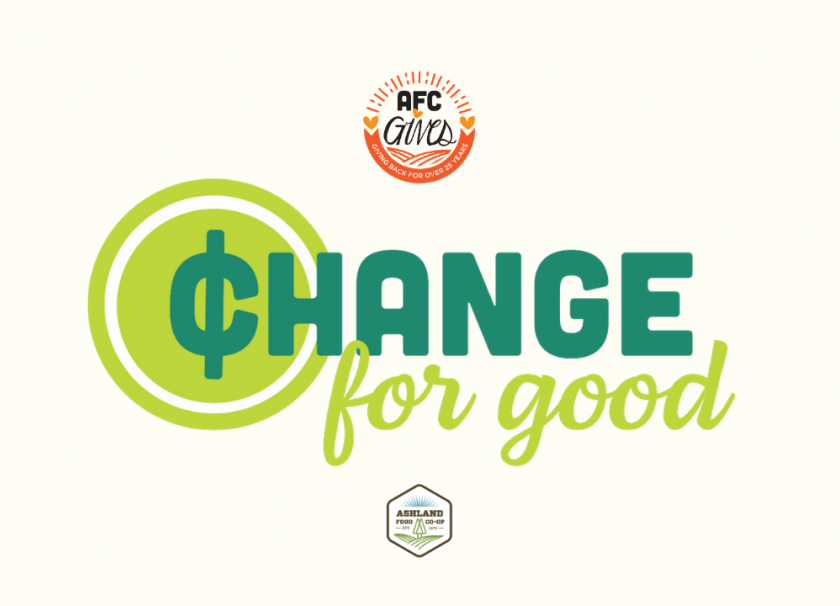
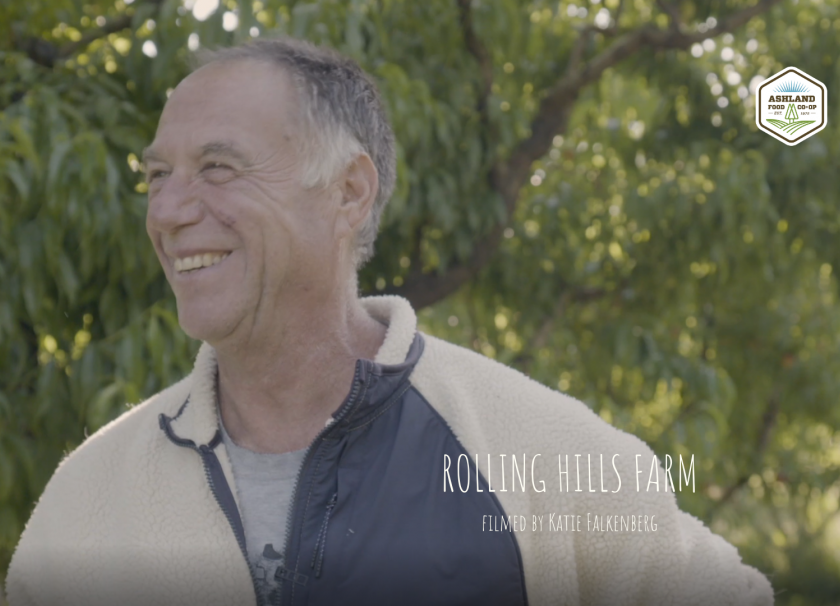
A Visit with Rolling Hills
Visit Rolling Hills Farm and learn more about owner Dave Belzberg, who the Ashland Food Co-op is so honored to partner with for more than thirty five years.
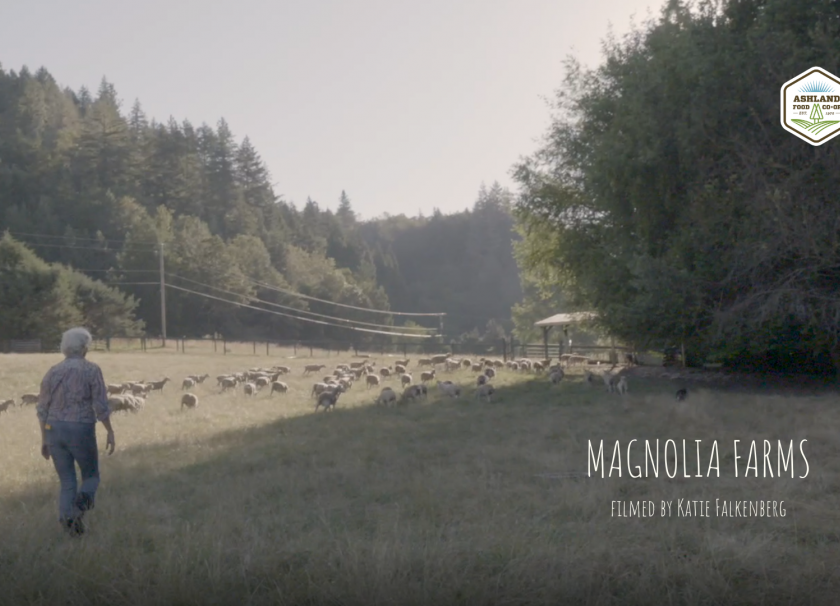
A Visit with Magnolia Farms
Visit Magnolia Farms and learn more about owner Elissa Thau, who the Ashland Food Co-op is so honored to partner with for more than twenty years.

